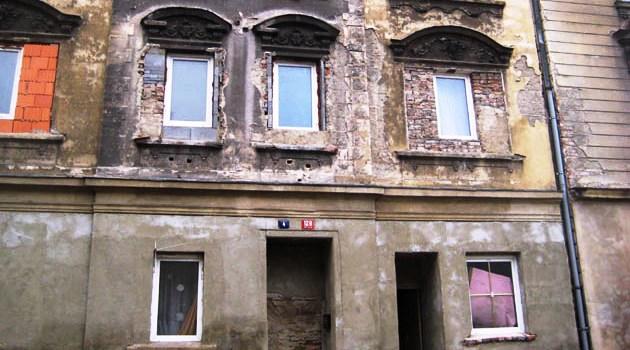The number of impoverished ghettos and Romani families living in overpriced, substandard residential hotels significantly increased last year. Romani tenants’ access to rental housing deteriorated during the same time period.
There was no improvement when it comes to the inclusion of Romani children into regular schools or the employment of Romani adults. Those are the findings of the Report on the State of the Romani Minority in the Czech Republic for the year 2013 which the Government will discuss tomorrow.
According to the report, last year the number of impoverished localities rose. What’s more, they have begun to change.
Such ghettos have stopped developing mainly in towns and have spread to a large number of rural areas. In more remote communities, however, it is even harder for adults to find work and children must travel further to school; social services are also lacking.
Romani tenants’ access to rental housing deteriorated last year, according to the report. "The number of Romani households dependent, for various reasons, exclusively on residential hotel facilities is growing, and such places are not appropriate for permanent housing," write the authors of the report.
According to the report, no improvement can be expected in years to come. Romani families reportedly have little chance of acquiring an ordinary apartment in the Czech Republic and a generation who knows no other kind of housing is already growing up in the residential hotels.
"This significantly increases the probability that these people will live in social exclusion as adults, just like their parents do," the authors of the report conclude. Many Romani tenants cannot access the kind of housing currently available to the rest of the population because they cannot afford to pay deposits, realtors’ commissions, or market rents.
According to the report, the "insurmountable barrier" is the fact that landlords are not willing to lease to Romani tenants irrespective of their actual financial circumstances. According to research performed last year, prospective tenants with Romani names had to call twice as many advertisements as those with non-Romani names before they were invited to view an apartment.
The authors of the report say that those operating residential hotels are making up for the fact that there is no social housing in the country by offering their facilities to Romani tenants. The report mentions that providing such accommodation has become a growth business.
According to the report, the rise in the number of people occupying such facilities is massive. The authors document their claims with data on the disbursal of housing benefits, most of which are sent directly to residential hotel operators in the name of their tenants.
Last year more than CZK 2.81 billion in such housing payments were disbursed by the state. That was CZK 1.14 billion more than in 2012.
On average last year, authorities disbursed a total of 65 100 individual payments per month, or 21 500 more than the year before. The average benefit was worth CZK 3 610.
According to the report, the owners of residential hotels have begun to abuse this set of benefits and are charging exorbitant prices for their accommodations. Even though the conditions in such facilities are usually substandard, reportedly Building Works Authority officials and public health officials do not interfere with them.
The sudden closure of a residential hotel usually means its occupants would end up on the street, as municipalities lack housing crisis plans and sufficient reserve apartments, the report says. In some regions, the number of private landlords leasing lower-quality apartment units to Romani families for significantly higher rents than usual is also rising.
Those rents are also being paid for with housing benefits. According to the results of the last census, only 9 % of apartment units in the Czech Republic belong to municipalities.
Less than 3 % of the residential apartment buildings in the country are wholly owned by either a municipality or the state. Romani families, according to the authors of the report, are now being moved from place to place around a region or between regions according to the opening and closure of residential hotels.
This is complicating the development and planning of social services in various places, as well as Romani integration. The report also notes that there has been no improvement when it comes to Romani children being enrolled into mainstream primary schools.
On average, Romani children comprise 28 % of the pupils attending schools designed to educate the "lightly mentally disabled" in the Czech Republic. In the Ústí Region, almost 42 % of the children attending such schools are Romani, while in the Moravian-Silesian Region 36 % of the pupils attending such schools are Romani.
The report finds that Romani people have also not managed to improve their position on the labor market. Most Romani households in need live in ghettos where between 70 – 100 % of adults are unemployed, ghettos located in regions with high unemployment.
Many Romani people work under the table. Some of them, due to their high debts, do not want to be officially employed because they do not want their wages garnished, notes the report.
Romani people also have, on average, worse health than the rest of the Czech population and suffer more from chronic illnesses. According to the report’s findings, ghetto residents visit doctors only when their state of health suddenly deteriorates, not for preventive checkups.
The authors see one of the reasons for this as the fact that some doctors do not want to register Romani patients. A total of 44 % of the Romani people surveyed said they could not afford to buy prescribed medicine last year.
